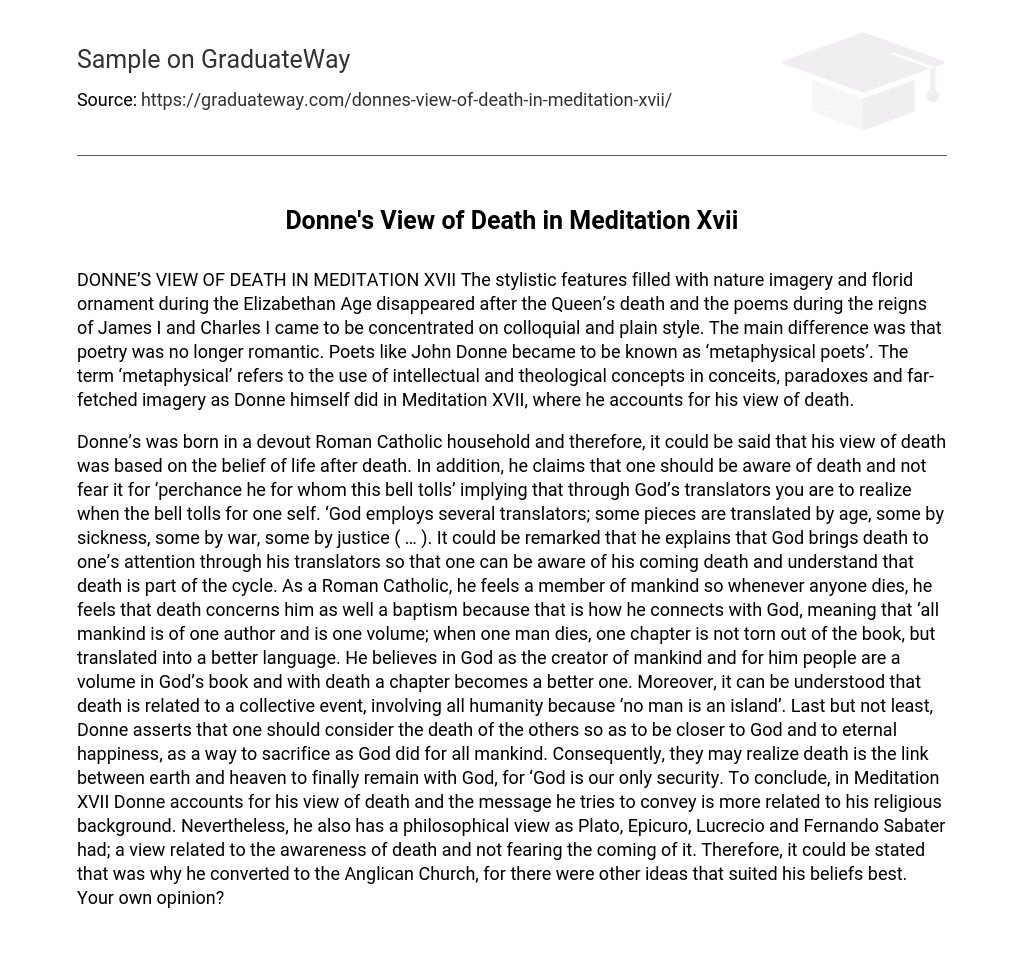The Elizabethan Age was known for its stylistic features filled with nature imagery and florid ornament. However, after Queen Elizabeth’s death, poetry during the reigns of James I and Charles I shifted towards a more colloquial and plain style. One notable change was that poetry no longer focused on romance. This shift gave rise to poets like John Donne, who were known as ‘metaphysical poets’. The term ‘metaphysical’ refers to their use of intellectual and theological concepts in constructs, paradoxes, and extravagant imagery. Donne himself employed these techniques in Meditation XVII, where he explains his perspective on death.
Donne’s perspective on death is influenced by his upbringing in a Roman Catholic household, which emphasizes the belief in life after death. Rather than fearing death, Donne suggests that one should acknowledge it as a possible indication of their own approaching end. He explains, “God employs several translators; some pieces are translated by age, some by sickness, some by war, some by justice (…).” This implies that God uses various means to make individuals aware of their impending death and understand that it is a natural part of life. Being a devout Catholic, Donne feels connected to all of humanity. When someone dies, he believes it affects him personally. This connection resembles baptism as it allows him to establish a link with God. According to Donne, “all mankind is of one author and is one volume; when one man dies, one chapter is not torn out of the book but translated into a better language.” In this analogy, each person’s life represents a chapter in God’s book and death signifies the transition to an improved stage.
The text suggests that death is a collective experience for all of humanity. It emphasizes the interconnectedness of individuals and highlights the importance of contemplating the deaths of others. This contemplation allows individuals to draw closer to God and attain eternal happiness, similar to God’s sacrifice for mankind. Death is portrayed as a bridge between Earth and heaven, leading to unity with God. The author, Donne, presents his perspective on death rooted in his religious background but also shares a philosophical viewpoint held by other thinkers such as Plato, Epicurus, Lucretius, and Fernando Sabater – an awareness of death without fear. This may explain why he converted to the Anglican Church as it aligned better with his beliefs.





